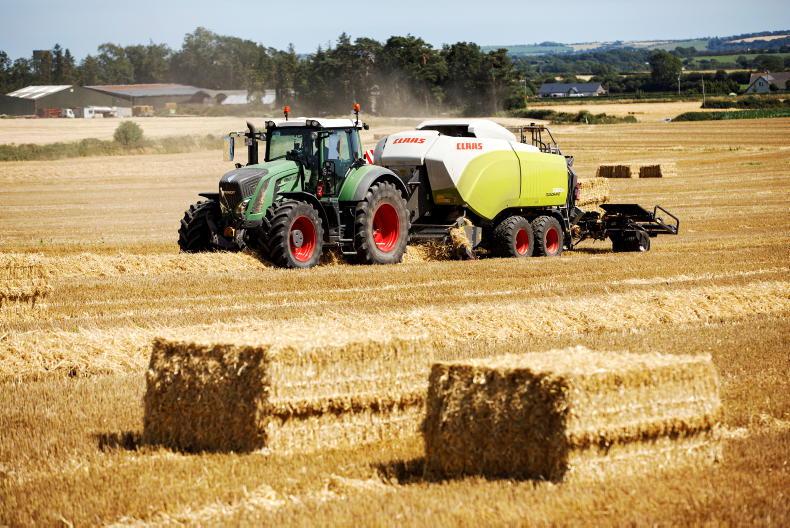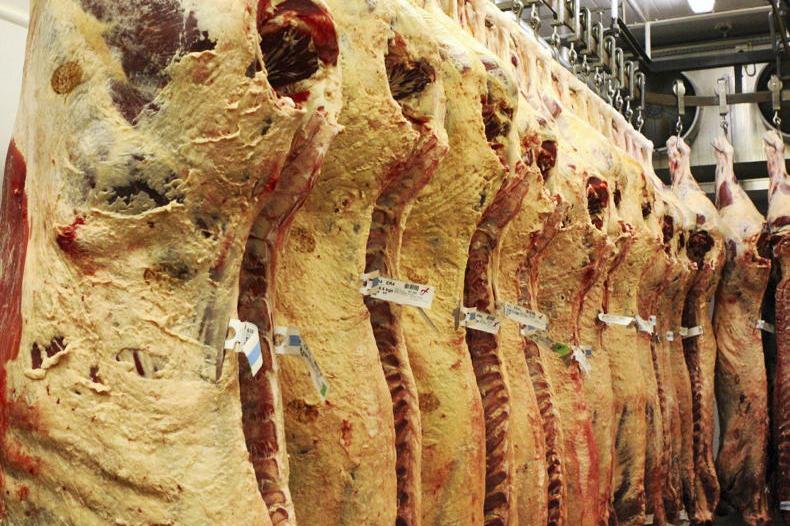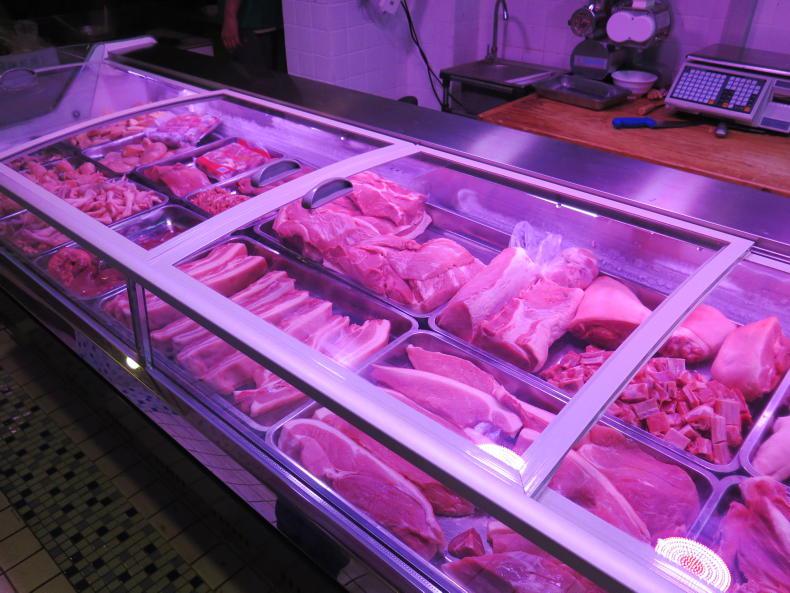A newly published insight into the Irish pig industry suggests the total annual economic contribution to the Irish economy is in the order of €1.5bn.
To think that just over 230 commercial pig farms are contributing this value to the Irish economy shows the value of the sector to local jobs and businesses around Ireland. According to the report, the sector sustains over 8,000 jobs from the farm right up through primary and secondary processing.
The PwC report, commissioned by Kiernan Milling and supported by the pig industry, is the first such study to quantify the economic capacity of the sector in the Republic of Ireland.
Northern Ireland has another 50 commercial pig farmers producing from another 45,000 sows. The economic impact of the pig sector in NI is in addition to what PwC has quantified in this report. Some Northern Ireland commentators would suggest the NI pig industry is not supported to the same extent.
Value
This €1.5bn number that PwC sets out puts a value on the pigmeat, the employment in the sector and the spend in the local economy. This is largely money generated and spent in rural areas as opposed to urban industries.
The report suggests the pig industry spends some €789m with Irish suppliers and contractors in daily operations and by far the largest part in this spend is on feed.
As Teagasc specialist Michael McKeon points out, the five big players in the feed industry are carrying a lot of the extra feed credit burden. Their requirement for extra liquidity has risen exponentially over the last few years, with an extra €43m needed now on an annualised basis. So there is no doubt business and personal friendships between feed millers and pig farmers are being tested on a daily basis given the extent of the losses in the sector at the moment.
Where is it all going wrong?
In the report, PwC points to the prevailing competitiveness challenges that present a real risk to Ireland’s pig industry and hence also threaten the sector’s future contributions to Ireland’s economy.
It calls out the rising feed and energy costs and reduced pigmeat prices brought about by a perfect storm from combined effects of Brexit, COVID-19 and the war in Ukraine.
The report suggests that pig farmers operating a 600-sow farm are forecast to incur average monthly losses of €44,000 or €528,000 over 12 months. While some will point to the fact some businesses can carry this loss on the back of better, more profitable years, but monthly losses at close to €50,000/month are completely unsustainable.
The crux of the matter and why the industry is between a rock and hard place is the fact it is so dependent on imported fuel and energy, imported feed, and in some cases foreign labour.
Even if as a pig farmer you hit all the targets on feed efficiency and litter weight gains, when the cost of the three big inputs – feed, energy and labour – are completely out of kilter, it presents a serious challenge.
China
Alongside this challenge, a large portion of exports are to one country (China), which no longer seems to want the quantities it once imported given a restructuring of its pig industry.
The report calls out the primary export markets but does not go into the country dependency on the so-called “value-added” pork exports. If 50% of primary exports are to Asia, the sector could be even more dependent on Asia if the value-added exports are also going to the far east. Also, imports need to be brought into the equation to show the overall picture. Maybe the pig industry needs an annual report with even more detail to keep the sector front and centre.
Northern Ireland pig sector
The latest figures recorded by the Department of Agriculture, Environment and Rural Affairs (DAERA) in NI show that there are 178 farms with over 10 sows, although the majority of animals (79%) are concentrated on 51 farms that each have over 200 sows and breeding gilts with over 45,000 sows versus 145,000 in the Republic.
In 2021, NI factories slaughtered 1.51m home-produced clean pigs. However, the pig sector operates across the island, with the Sofina Foods factory in Cookstown, Co Tyrone, having a long-established relationship with producers and customers south of the Irish border. Irish pig imports slaughtered in NI totalled 430,706 in 2021.
In total, the pig industry is the fourth largest agri-food sector in NI, contributing around £400m in turnover. There are over 1,700 people employed in pig processing. Thompsons and Fane Valley would be big suppliers of feed into the pig sector.
Background: PwC was commissioned by Kiernan Milling with the support of industry, farmers, processors, Teagasc Pig Development Department, and the Irish Farmers Association to produce an independent report assessing the annual economic contribution and employment from the pig sector.
The challenges in the Irish pig sector are not unique. The combination of low producer prices and high feed costs have resulted in the lowest profits margins in the European sector in a decade. In the absence of a tailored EU approach to the competitive challenges within the pig sector, PwC analysis shows that individual member states have used the EU State Aid Temporary Framework to support the sector.
Originally set up to support companies manage the consequences of the COVID-19 pandemic, it has been used by 13 member states to support their pig sectors. While Germany and the Netherlands both used national umbrella schemes to provide aid to the pig sector, 11 member states designed specific state aid support schemes for the pig sector.
PwC snapshot of European pig industry supports
Germany: Pig farmers could avail of the aid to help cover fixed costs of a maximum of €3m where turnover declined by at least 30% between March 2020 and June 2021 over 2019.
Netherlands: Pig farmers could participate in the wider scheme for businesses experiencing a 20% reduction in turnover per quarter from 2019. Support of up to €290,000 to cover 100% of lost turnover from the reference year and €290,000 to €600,000 to cover normal business inputs and fixed costs.
France: €270m aid package for pig producers which provides €15,000 payment for pig farms with severe cashflow difficulties and compensation for losses related to stock levels in a defined period.
Poland: €88m state aid package limited to €110,000 per farmer. Compensation is dependent on pigs being born during a reference period rather than lost turnover.
Belgium: Introduced a fixed-cost compensation programme up to a maximum of €100,000 per farm. Operates as a direct subsidy up to a flat rate of €530 per sow.
Spain: €10m in subsidies to Iberian breeders to mitigate COVID-19 impacts which include subsidies of €40 per pig for a maximum of 500 pigs on a single farm.
Italy: €50m related to African swine fever eradication programme.
UK: No UK-wide financial supports. Private storage aid for slaughtered pigs, relaxation of visa requirements for pork butchers, suspension of levies on pig farmers and producers have been introduced. Scotland introduced €1.4m in funding for those affected by COVID-19-related processing closures and reduced exports to China. While Northern Ireland introduced a £2m support package in April 2022.
Existing supports
PwC’s evaluation of the current range of Government supports, both tailored and broad SME supports, concludes that significant further support is required.
Both the Brexit Impact Loan Scheme and the COVID-19 Credit Guarantee Scheme provide access to credit for pig farmers among other SMEs. However, they conclude that future loan repayment costs and rising levels of debt being accumulated should be further considered.
Of the specific pig support schemes, PwC notes that some farmers are still awaiting Pig Exceptional Payment Scheme payments (€20,000 per producer) and further funding is needed. Pig farmers await clarity on timing of payments (€70,000 per producer) under the EU Exceptional Aid Adjustment Package for Pig Farmers.
PwC proposes that use of the Brexit Adjustment Reserve and the EU Temporary Crisis Framework (in the context of the Ukraine war) would have a greater impact on the sector.
The IFA’s proposed pig stability fund and the EU State Aid Temporary Framework (COVID-19) would make a significant contribution to mitigating the ongoing challenges.










SHARING OPTIONS